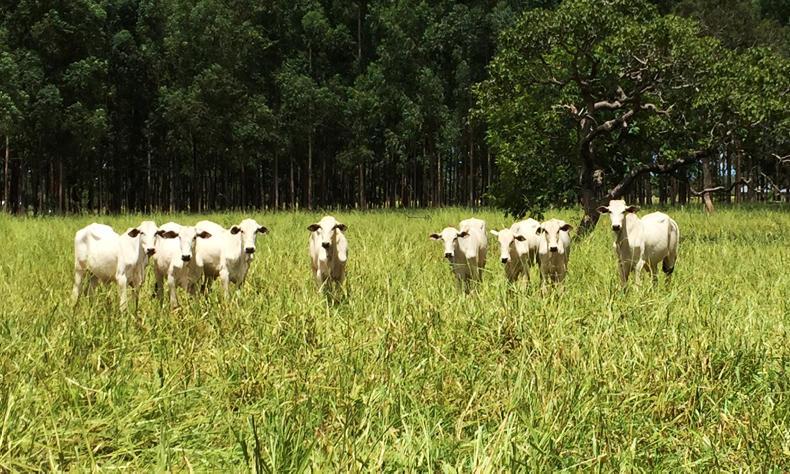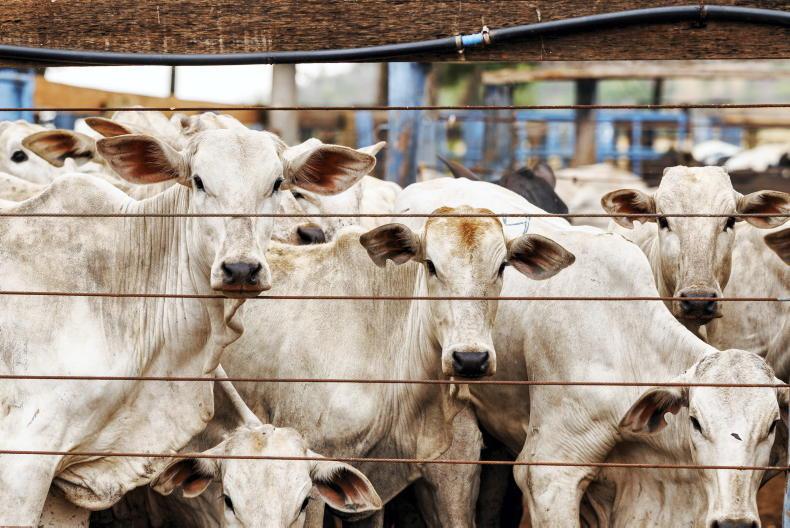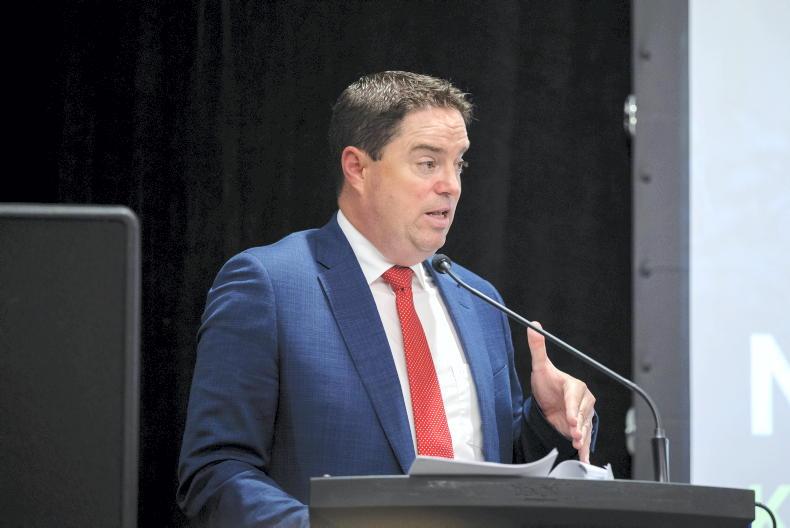The European Commission has published a summary of the agreement in principle struck with four South American countries in the Mercosur bloc on Friday.
The document clarifies that the 99,000t of extra South American beef to be allowed into the EU at the reduced duty rate of 7.5% every year will be carcase weight equivalent (CWE). Some 55% of this will be fresh and 45% frozen.
There are no details regarding the type of cuts covered by the agreement, suggesting that this has yet to be negotiated or published.
Mercosur countries will also be allowed to export 180,000t CWE of duty-free poultry to the EU, half of it bone-in and the other half boneless.
An annual quota of 25,000t of pigmeat will benefit from a reduced duty rate of €83/t.
Sugar
The text confirms that the EU will open duty-free access for 180,000t of Brazilian sugar for refining and 10,000t from Paraguay, as well as 450,000t of ethanol for chemical uses.
The EU import tariff on 200,000 additional tonnes of ethanol for all uses including fuel will be reduced by one third.
Quotas of South American rice, honey and sweetcorn will also see EU import duties reduced.
All quotas will be phased in over six years, except for ethanol and sweetcorn where changes will happen as soon as the agreement enters into force.
Dairy
On the dairy side, European and South American negotiators have agreed to apply the following annual duty-free quotas to trade going both ways, to be phased in over 10 years:
30,000t of cheese.10,000t of milk powders.5,000t of infant formula.There will also be full liberalisation for EU pigmeat exported to Mercosur, as well as a number of commodities including spirits.
This could lift duties of 20% to 35% currently applicable to drinks such as Irish whiskey.
The South American countries will protect 355 European geographical indications.
Trade in products not protected by quotas will be fully liberalised.
Standards
The document states that EU sanitary standards "will not be relaxed in any way by the agreement with Mercosur".
Issues such as animal welfare and food safety are referred to co-operation "dialogues" between the two sides.
"In a specific article on climate change, they agreed to strong language committing to effectively implement the Paris Agreement," the summary promises, adding: "Commitments are included on fighting against deforestation. Private sector initiatives strengthen these commitments, for example not to source meat from farms in recently deforested areas."
The summary published by the Commission specifies that the agreement in principle "is not a legal text" and is subject to the transcription of all market offers into a final document.
Read more
Factories raise concerns about low-priced Mercosur beef
Government to assess impact of Mercosur deal on Irish economy
We have two years to get concessions on Mercosur – Creed
The European Commission has published a summary of the agreement in principle struck with four South American countries in the Mercosur bloc on Friday.
The document clarifies that the 99,000t of extra South American beef to be allowed into the EU at the reduced duty rate of 7.5% every year will be carcase weight equivalent (CWE). Some 55% of this will be fresh and 45% frozen.
There are no details regarding the type of cuts covered by the agreement, suggesting that this has yet to be negotiated or published.
Mercosur countries will also be allowed to export 180,000t CWE of duty-free poultry to the EU, half of it bone-in and the other half boneless.
An annual quota of 25,000t of pigmeat will benefit from a reduced duty rate of €83/t.
Sugar
The text confirms that the EU will open duty-free access for 180,000t of Brazilian sugar for refining and 10,000t from Paraguay, as well as 450,000t of ethanol for chemical uses.
The EU import tariff on 200,000 additional tonnes of ethanol for all uses including fuel will be reduced by one third.
Quotas of South American rice, honey and sweetcorn will also see EU import duties reduced.
All quotas will be phased in over six years, except for ethanol and sweetcorn where changes will happen as soon as the agreement enters into force.
Dairy
On the dairy side, European and South American negotiators have agreed to apply the following annual duty-free quotas to trade going both ways, to be phased in over 10 years:
30,000t of cheese.10,000t of milk powders.5,000t of infant formula.There will also be full liberalisation for EU pigmeat exported to Mercosur, as well as a number of commodities including spirits.
This could lift duties of 20% to 35% currently applicable to drinks such as Irish whiskey.
The South American countries will protect 355 European geographical indications.
Trade in products not protected by quotas will be fully liberalised.
Standards
The document states that EU sanitary standards "will not be relaxed in any way by the agreement with Mercosur".
Issues such as animal welfare and food safety are referred to co-operation "dialogues" between the two sides.
"In a specific article on climate change, they agreed to strong language committing to effectively implement the Paris Agreement," the summary promises, adding: "Commitments are included on fighting against deforestation. Private sector initiatives strengthen these commitments, for example not to source meat from farms in recently deforested areas."
The summary published by the Commission specifies that the agreement in principle "is not a legal text" and is subject to the transcription of all market offers into a final document.
Read more
Factories raise concerns about low-priced Mercosur beef
Government to assess impact of Mercosur deal on Irish economy
We have two years to get concessions on Mercosur – Creed










SHARING OPTIONS